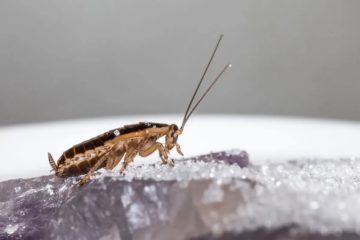Pamela Appea in Salon:
 Apparently, humans aren’t the only animals going keto. The German cockroach (Blattella germanica), one of the most common pests in the world, is evolving to have a glucose-free diet. Unlike many humans, it’s not because they’re suddenly watching their figure; rather, German cockroaches have inadvertently outwitted human pest control tactics by evolving to dislike sugar, specifically glucose. That could have huge implications for the population of cockroaches worldwide, which is of particular concern given their propensity to spread bacteria and disease.
Apparently, humans aren’t the only animals going keto. The German cockroach (Blattella germanica), one of the most common pests in the world, is evolving to have a glucose-free diet. Unlike many humans, it’s not because they’re suddenly watching their figure; rather, German cockroaches have inadvertently outwitted human pest control tactics by evolving to dislike sugar, specifically glucose. That could have huge implications for the population of cockroaches worldwide, which is of particular concern given their propensity to spread bacteria and disease.
The not-so-sweet insight emerged from new research coming out of North Carolina State University, where scientists study roach reproductive habits and evolutionary adaptations. There, Dr. Ayako Wada-Katsumata and a team of entomology researchers found evidence of significant changes involving sugar-averse German cockroaches and mating habits.
According to Dr. Coby Schal, professor of Urban Entomology, Insect Behavior, Chemical Ecology, Insect Physiology and head of the eponymous Schal Lab at North Carolina State University, the team’s new research shows that cockroaches have begun to deviate significantly compared to previously observed roach-mating behavior. Female lab roaches, housed in North Carolina lab originating from a Florida-strain, included a significant population of glucose-averse roaches; glucose is a simple sugar that is intrinsic to the processes of plant and animal life.
More here.
